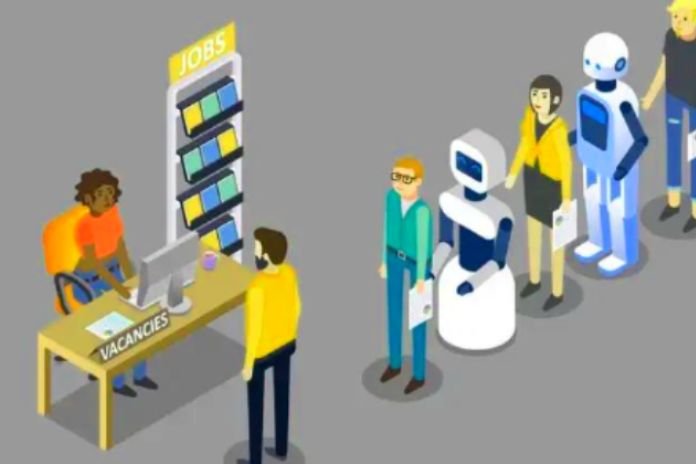Artificial intelligence And The Job Market
Artificial Intelligence in job market: Recently, Amazon launched a logistics solution in which drones would be responsible for delivering small objects, replacing the traditional delivery person or postman.
At the same time, the technology company mail.ru declared that it intends to invest in studies using robots as math teachers in schools.
Typists, telephone operators, mail carriers, and even teachers. All were replaced by technology and now by artificial intelligence. In the face of these changes, what is the future of jobs, and why is this important for the market?
What Can Change With Artificial Intelligence?
According to the Council On Foreign Relations organization, Artificial Intelligence represents the development of computer systems capable of performing tasks that would typically require human intelligence, such as visual perceptions, decision making, and even translations between languages.
As we have observed, AI already meets practical objectives, such as cost reduction and optimization of processes and tasks considered essentially repetitive. Consequently, some professions tend towards suppression.
In addition, with the evolution of research and investments in the area, it is now possible to find bots capable of performing highly complex tasks, considered, until then, as intellectual work.
How Is AI Affecting The Job Market?
Consequently, over time, those individuals who were satisfied with taking on less favored positions were encouraged to improve themselves through higher education, intellectual preparation, and experience to guarantee their space in the job market, developing society as a whole.
In this way, many occupations are losing ground to artificial intelligence, which is rapidly developing. The consulting firm Ernest & Young listed some of them; check them out below:
- Telemarketer: with increasingly intelligent bots, computers will be able to solve users’ problems, and services will no longer need to be performed by a person;
- Realtor: with increasingly more competent integrated digital platforms, the search for houses or apartments will no longer require a realtor. The construction company Rossi, for example, allows its customers to visit apartments remotely through a robot physically present on the property;
- Bank teller: with the popularization and constant development of banking services, the need for a cashier to carry out transactions is less and less.
Replacement Of Intellectual Work?
The same is happening with more complex processes, with tech giants behind them. For example, Watson, IBM’s supercomputer, is already capable of interpreting medical reports, preparing legal processes, and performing service in call centers, since it can analyze data, locate evidence and generate hypotheses.
Google is also developing artificial intelligence systems that can already edit photos as well as create journalistic content for the press.
Another innovation that has been gaining traction is autonomous driving. At the beginning of the decade, nobody talked about self-driving cars. Thanks to the development of technologies that combine hardware and software, from excellent sensors and radars to complex algorithms for the decision-making process, today we have technology giants (Google, Apple, Tesla, Uber, etc.) as the pioneers. All this in less than eight years.
What To Expect From The Future?
But will computers, shortly, have enough apparatus to be better than us? Some argue that artificial intelligence will wipe out hundreds of professions, generating unemployment and social collapse. But on the other hand, some believe that artificial intelligence will extinguish many jobs but that the market will naturally create hundreds of different occupations with greater complexity and responsibility.
We can say that we are experiencing a deepening of the Industrial Revolution. The “Digital Revolution,” as it is known, must go beyond replacing people with machines, and its mission is to reduce the existing barriers between the digital and the organic – in other words, to make Artificial Intelligence and human beings find complementary ways. Of acting.
But if the evolution of AI is strictly linked to the future of jobs and how we live in society, what will be left for us humans?
Since we are the ones who build them, the relationship of interdependence is clear. It is necessary to be aware of how artificial intelligence will, directly and indirectly, influence careers by investing in skills capable of making both parties walk side by side amid all technological evolution.
As in any Revolution, some may lose out. But with market intelligence and adaptability, new business models are being created and improved. It is up to the traditional market to adapt and keep up with the speed of change.
Also Read: AI: What Are Its Applications In Engineering?
Share this content:











Post Comment